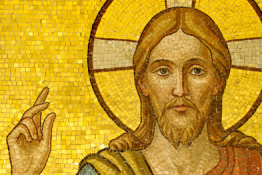South African Reflection: Christmas is about humanity AND the cosmos

While the historical authenticity of the Christmas story, as traditionally told, can be debated, the focus and point of the story is at the very heart of what it means to be Christian. We celebrate a whole series of events (The Holy Family, The Baptism of the Lord and the Epiphany) in these weeks, each a part of the Christmas story. This narrative is at the centre of our self-understanding. All that comes before it and all that flows from it reveals to us that Jesus is chosen to be God's representative in history. The incarnation means that God is active and present in the person of Jesus. This is the transformative power of the Christmas story: it tells us that God is present and active in the life and being of Jesus and, through the Spirit that Jesus gives us, God is present and active in our lives now.
But there is more. The doctrine of the incarnation of Jesus teaches us about the significance of God's immanence within and presence to all creation in a personal way. God came into the world to save the world and not just the people in it. Many people believe that Jesus came into the world to save humanity, those of us with self-awareness and consciousness. But, God's saving action in Jesus goes beyond humanity and reaches all of creation - animals, oceans, mountains, deserts etc. How often don't we get this wrong? Even our catechesis has failed to highlight this fact: The incarnation has meaning for humanity and the cosmos.
If you take time to look at the narrative in these Christmas days you will notice that it is not just human beings who are involved in the story of Jesus' birth, the cosmos too has its role: light and darkness, cold and warmth, beasts in a stable witness the birth, heavenly hosts and stars.
Just as we know and experience our human frailty, our immortality, so too creation (we are fast learning in the age of climate change!) is fragile and immortal. Science tells us that the earth is struggling, the sun is slowly burning out and water is becoming a scarce commodity. We, in South Africa, have experienced drought and floods. We have seen changing weather patterns and the inability of some forms of life to continue to exist. There is a long list of species which are extinct or in danger of becoming extinct.
The cosmos too is mortal and needs salvation. The Christmas story reveals who will save the whole of creation: The God who becomes human in the person of Jesus.
Whatever you think of Pope Francis one thing is clear. His encyclical Laudato Si' is a prophetic document which calls us into a renewed relationship with God, others and creation. It reminds us that we are to care for everything - humans, animals, the earth, the seas and the air that we breathe. Our salvation is not just about right relationship with God and other people. It is about right relationship with the cosmos.
As we celebrate the Christmas story and take a time of well-earned rest, we might also want to ask ourselves the uncomfortable question: Does my lifestyle cherish and care for the cosmos the baby Jesus came to save?
Follow The Jesuit Institute on Twitter @JesuitInstitute


















